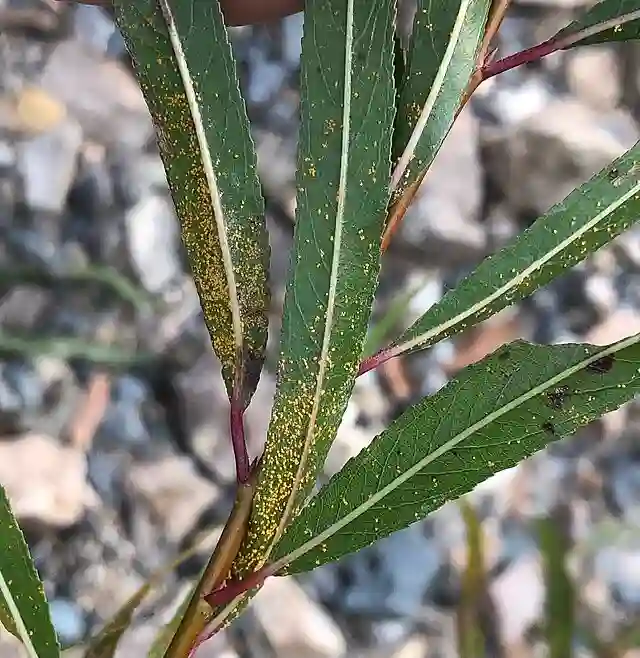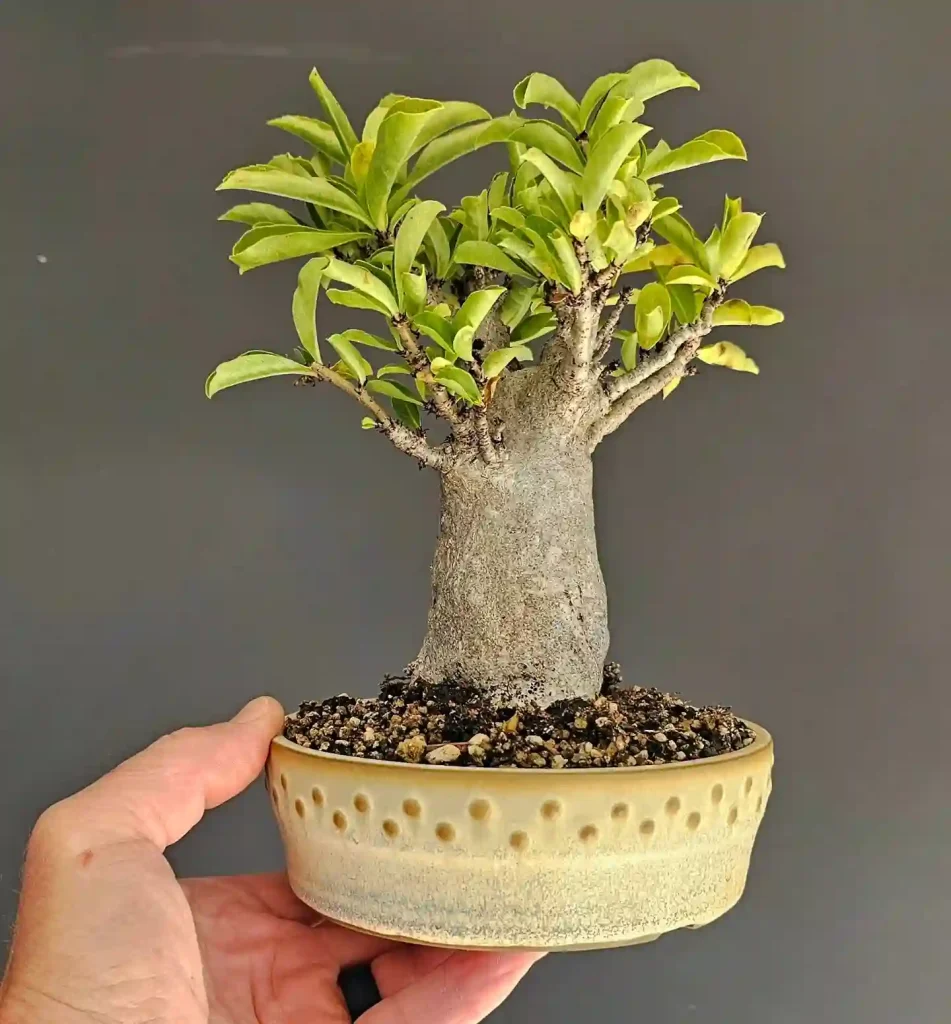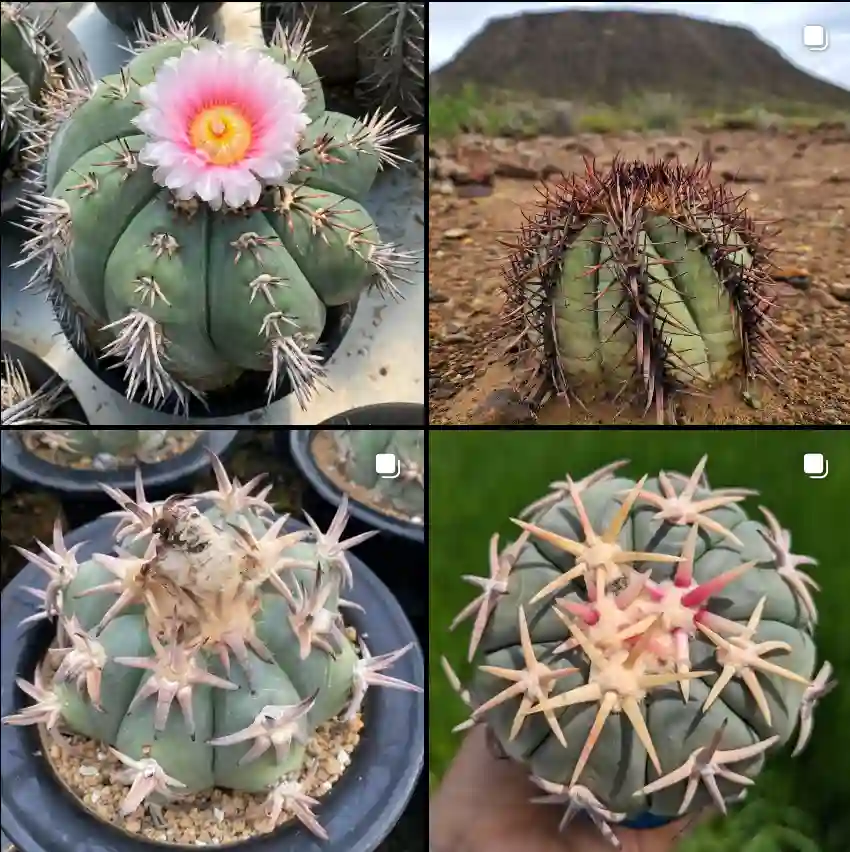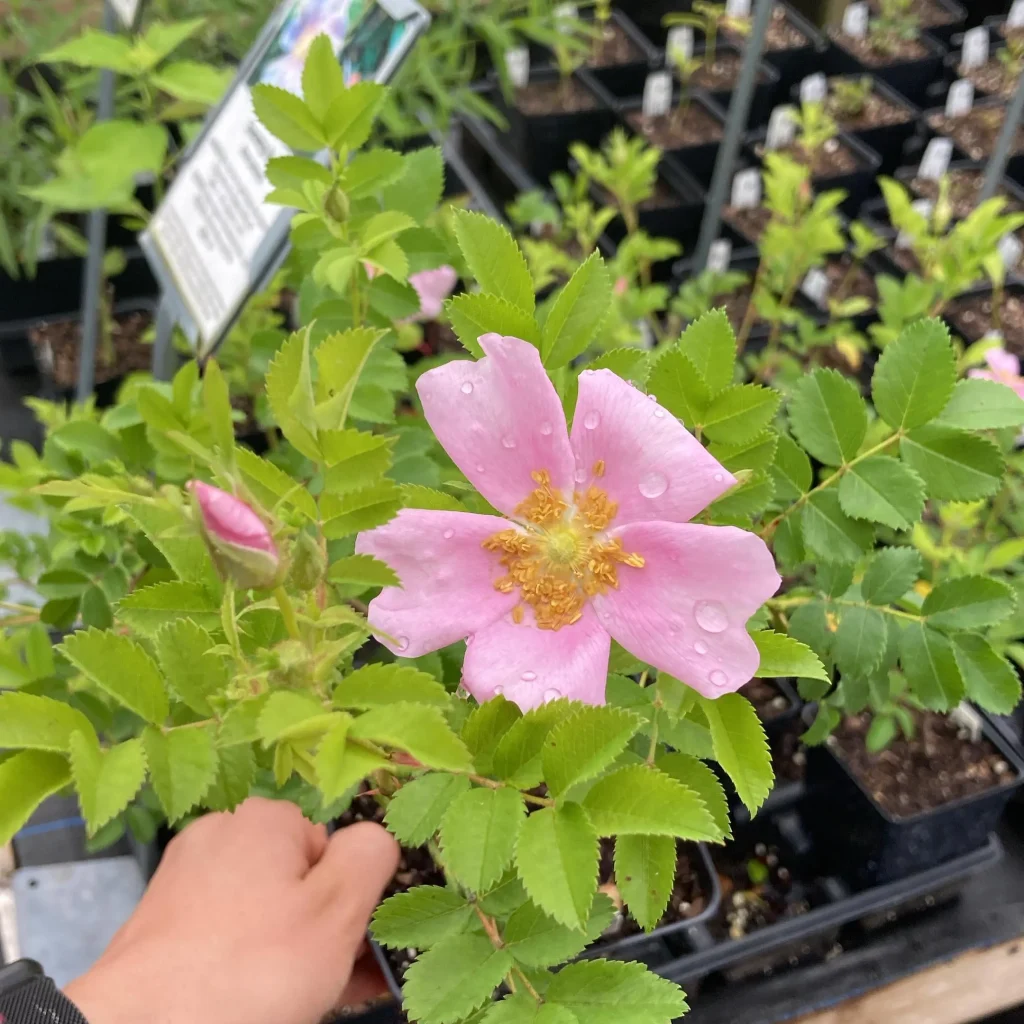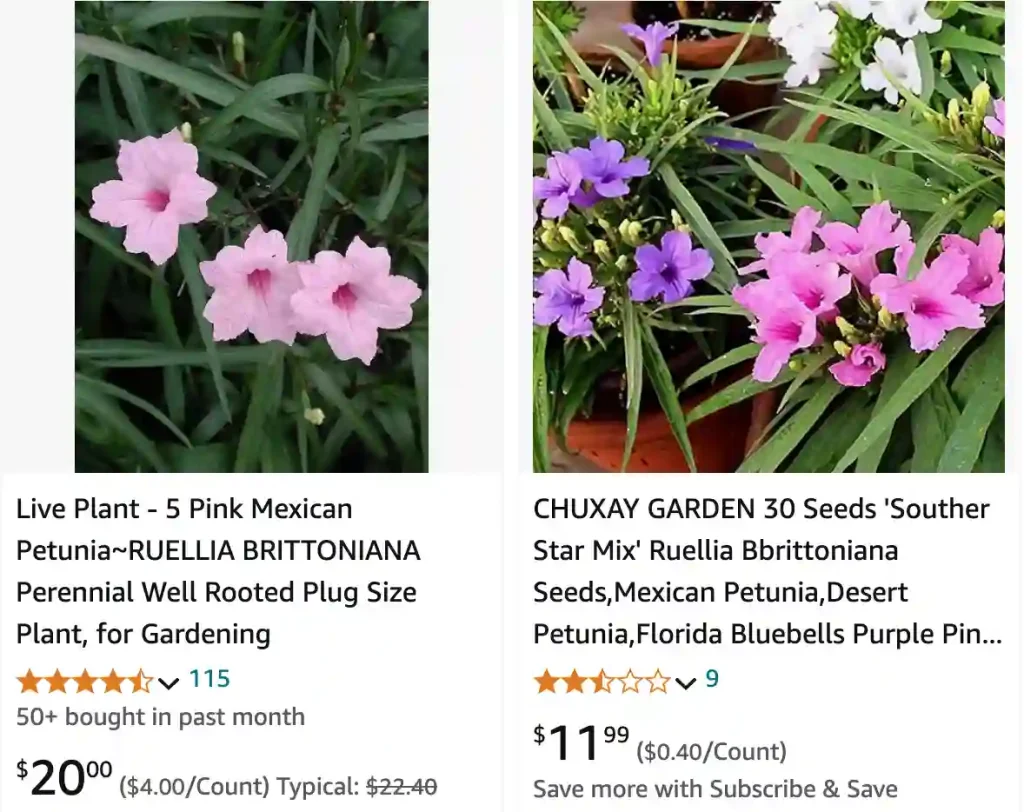
FAQs About Mexican Petunia: A Complete Guide
As someone who has spent a good amount of time growing and caring for various plants, I’ve found Mexican Petunia (Ruellia Simplex) to be both a joy and a challenge. These vibrant, hardy perennials are popular for their striking purple, pink, or white flowers and their ability to thrive in a range of conditions. However, they can also be invasive if not managed properly. Here are some of the most frequently asked questions about Mexican Petunia that I’ve encountered over the years.
366 Species in Genus Ruellia
What is Ruellia Simplex?
Ruellia Simplex is a perennial plant native to Mexico and the southwestern United States. It’s known for its long, slender leaves and trumpet-shaped flowers that bloom in various colors, predominantly purple. The plant typically grows about 3 to 4 feet tall and spreads equally wide. It’s often used in landscaping due to its ability to thrive in different conditions, from full sun to partial shade.
Are Mexican Petunias Poisonous to Dogs?
One of the most common concerns for pet owners is whether a plant is safe for their furry friends. Unfortunately, Mexican Petunias are considered toxic to dogs. If ingested, they can cause vomiting, diarrhea, and other gastrointestinal issues. As a dog owner myself, I make sure to keep Mexican Petunias out of reach or avoid planting them in areas where my pets frequent. Always consult your veterinarian if you suspect your pet has eaten any part of a Mexican Petunia.
How to Care for Ruellia Simplex?
Caring for Ruellia Simplex is straightforward, which is one of the reasons I love it. Here’s a quick guide:
- Light: This plant thrives in full sun but can tolerate partial shade. If you want more blooms, ensure it gets at least 6 hours of sunlight daily.
- Watering: Ruellia Simplex is relatively drought-tolerant once established. However, it prefers regular watering, especially in hot, dry periods. I water mine once a week, more often during extreme heat.
- Soil: It adapts to various soil types, but well-draining soil is best. While it can tolerate poor soil conditions, rich, loamy soil will encourage more vigorous growth and blooming.
- Fertilization: I’ve found that a balanced, slow-release fertilizer applied in the spring works well. Over-fertilizing can lead to excessive foliage growth with fewer flowers.
- Pruning: Regular pruning helps maintain its shape and encourages more blooms. I usually trim mine back in early spring.
Can You Grow Ruellia Simplex Indoors?
Yes, you can grow Ruellia Simplex indoors, though it may not bloom as profusely as it does outdoors. If you decide to grow it inside, place it in a sunny spot where it receives plenty of light. I’ve kept mine on a windowsill that gets morning sunlight, and it seems quite happy there. Just remember to keep the soil moist and provide adequate drainage.
How to Get Rid of Mexican Petunias?
If you’ve planted Mexican Petunias and they’re starting to take over your garden, you’re not alone. Their aggressive growth can make them difficult to control. To get rid of Mexican Petunias, you need to dig up the entire plant, including the roots, as any leftover root fragments can sprout new plants. Repeatedly cutting back the plants and applying a non-selective herbicide can also help manage their spread.
How to Keep Mexican Petunias from Spreading?
To prevent Mexican Petunias from spreading, it’s essential to regularly prune the plants, removing any flowers before they have a chance to seed. You can also install a physical barrier around the plant to contain its growth. Planting Mexican Petunias in pots rather than directly in the ground is another effective way to keep them from spreading.
How to Propagate Mexican Petunia?
Propagating Mexican Petunias is surprisingly easy. They can be propagated through cuttings or by division. To propagate through cuttings, simply take a 4-6 inch stem cutting, remove the lower leaves, and place it in water or moist soil until roots develop. For division, dig up an established plant and separate the root clumps, then replant them in your desired location.
How to Prune Mexican Petunia?
Pruning Mexican Petunias helps maintain their shape and encourages more blooms. In the spring, trim back any dead or damaged stems to about 6-8 inches above the ground. Throughout the growing season, deadhead spent flowers to promote continuous blooming and prevent the plant from going to seed.
How to Treat Mites on Mexican Petunia?
Like many plants, Mexican Petunias can be susceptible to pests like mites. If you notice tiny webs or discolored leaves, your plants might have a mite infestation. To treat mites, start by rinsing the plant thoroughly with water to dislodge the pests. You can also use insecticidal soap or neem oil as a more targeted treatment. Regularly check your plants to catch infestations early.
How to Winterize Mexican Petunia?
In colder climates, Mexican Petunias need some protection during the winter. Before the first frost, cut the plants back to about 6 inches above the ground. Mulching around the base of the plant with straw or leaves can provide extra insulation. If you’re growing Mexican Petunias in pots, bring them indoors or to a sheltered area to protect them from freezing temperatures.
When Do Mexican Petunias Bloom?
One of the reasons I love Mexican Petunias is their long blooming period. They typically bloom from late spring to early fall, producing an abundance of colorful flowers. In warmer climates, they might even bloom year-round, adding continuous color to your garden.
Do Deer Eat Mexican Petunias?
If you live in an area with a lot of deer, you’ll be pleased to know that Mexican Petunias are generally deer-resistant. While no plant is entirely deer-proof, Mexican Petunias are not a preferred food for these animals, making them a good choice for gardens where deer are a common problem.
When Do Mexican Petunias Come Back?
Mexican Petunias are perennials, meaning they come back year after year. In warmer climates, they might remain evergreen and continue growing throughout the year. In cooler regions, they may die back in the winter and reemerge in the spring. Their hardiness makes them a reliable choice for many gardens.
Can Mexican Petunias Be Planted in Pots?
Yes, Mexican Petunias can be successfully grown in pots. In fact, container planting is an excellent way to control their spread. When planting in pots, use a well-draining potting mix and a container with drainage holes to prevent waterlogging. Potted Mexican Petunias can also be moved indoors or to a sheltered area during colder months, providing more versatility in colder climates.
Common Problems with Ruellia Simplex
Ruellia Simplex is generally low-maintenance, but like any plant, it can have issues. The most common problems I’ve encountered include:
- Pests: Aphids and whiteflies can occasionally be a problem. I usually spray them with insecticidal soap or neem oil.
- Powdery Mildew: This fungal disease can affect the leaves, especially in humid conditions. Ensure good air circulation and avoid overhead watering to prevent this.
- Invasiveness: Ruellia Simplex can be quite aggressive and spread quickly. I recommend regularly thinning the plant and controlling its spread to prevent it from taking over your garden.
Benefits of Growing Ruellia Simplex
One of the main reasons I enjoy having Ruellia Simplex in my garden is its resilience. It’s drought-tolerant, heat-resistant, and can handle various soil conditions. It’s also a magnet for pollinators like butterflies and bees, which is a huge plus for me as I love seeing my garden full of life.
Mexican Petunia vs. Ruellia
Mexican Petunia is often confused with other species in the Ruellia genus. While they share similar characteristics, Mexican Petunia (Ruellia simplex) is particularly known for its invasive tendencies and vibrant, trumpet-shaped flowers. It’s essential to identify the specific species you’re dealing with, as some Ruellia varieties are more manageable and less aggressive than the Mexican Petunia.
Mexican Petunias vs. Oleander
Both Mexican Petunias and Oleander are popular for their vibrant flowers and hardiness. However, Oleander is a shrub with a more bush-like growth habit, whereas Mexican Petunia has a more herbaceous, spreading nature. Additionally, Oleander is highly toxic to both humans and animals, so extra caution is needed when planting it.
Conclusion
Mexican Petunias can be a stunning addition to any garden with their vivid blooms and hardiness. However, their invasive nature and potential toxicity to pets require careful management. Whether you’re dealing with pests, controlling their spread, or simply enjoying their beauty, understanding the ins and outs of Mexican Petunia care can help you make the most of this unique plant.
If i die, water my plants!
